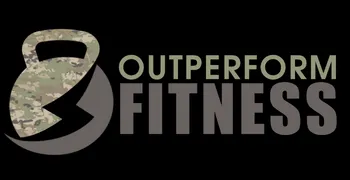Welcome to the Outperform blog page - your ultimate destination for discovering the secrets to unlocking your full potential in the realm of tactical professions. Whether you're striving to achieve your dream career or looking to elevate your fitness for better job performance, we've got you covered.
Article Topics:

How to Train in the Final 2 Weeks Before Kapooka: A Practical Guide for ADF Applicants
How to Train in the Final 2 Weeks Before Kapooka: A Practical Guide for ADF Applicants
Preparing for Kapooka? You're not alone in wondering how to approach your training in those final weeks before enlistment. One of our members recently asked:
"I have Kapooka in just over three weeks. What’s the best approach to my training and nutrition schedule to ensure I maintain my gains, but I’m rested enough for the 21 days?"
Here’s your no-nonsense guide to tapering your training and arriving fit, fresh, and ready.
Why Tapering Matters
The final stretch before basic training isn’t about pushing harder — it’s about backing off just enough to let your body recover while still staying active. Training breaks the body down. Recovery builds it back up. If you’re constantly loading the system, you’re walking into Kapooka with fatigue, soreness, and a greater risk of injury.
This isn’t a performance peak. It’s a readiness phase.
Your job was to build the engine months ago. Now it's time to maintain it and clear out the accumulated fatigue.
Key Principles for the Final 2 Weeks
1. Maintain, Don’t Max Out
Stop chasing PBs. Your fitness base is already there. Instead, shift your focus to:
Keeping movement consistent (train most days)
Reducing intensity and volume
Avoiding soreness and overreaching
Your sessions should leave you feeling fresh — not wrecked.
2. Start the Taper 2 Weeks Out
Week 1 (2 weeks out): Slightly lower intensity and volume. Maintain similar structure to your regular sessions, but ease back on big runs, max lifts, and long-duration training.
Week 2 (final week): Cut load by 30–50%. Lighter weights, slower runs, shorter sessions. This week is all about recovery.
3. Prioritise Recovery
This includes:
Proper warm-ups and cool-downs
Mobility and stretching work
Sleep (7–8 hours minimum)
Staying hydrated (include electrolytes)
Hitting your protein and calorie targets to support recovery
4. Light Movement Over Rest
Complete rest isn’t the goal. Instead, switch some sessions to low-intensity cardio like walking, light rowing, or mobility-focused work.
Mental & Lifestyle Prep
Your body isn’t the only thing that needs a taper — your brain does too.
1. Visualise Success
Picture yourself marching out, completing your course, and putting on your uniform. Keep that image in your mind and let it guide your mindset.
2. Control What You Can
Focus on controllables:
Sleep
Nutrition
Breathwork
Stress management
These small factors matter. In basic training, you won’t control much — so take advantage of that now.
3. Avoid Injury & Illness
No risky activities (mountain biking, intense contact sports, etc.)
Don’t try new training methods or routines
Limit exposure to big crowds and high-risk situations where illness can derail your prep
Admin & Packing
Get your checklist sorted early:
Financials
Packing
Pet arrangements
Loose ends
Don’t leave it to the last 48 hours.
For inspiration, check out how Kate bounced back after failing Kapooka and came back stronger.
Final Word: Train Smart, Arrive Fresh
You’ve done the hard work. Now it’s about arriving sharp — physically and mentally.
Don’t stack stress on stress. Use this taper window to dial things in and front-load your recovery. That way, when you step off the bus, you’re not playing catch-up — you’re already in the fight.
Want help structuring your training with expert support? Check out our Beep Test Training Guide and Beep Test Mindset Hacks.
🎥 Watch the full video here
Need a Plan Built for ADF Applicants?
Join the Fit For Service training plan — trusted by aspiring applicants across Australia:
No guesswork. No wasted time. Just the exact steps to get you physically and mentally prepared for service.
WANT TO GET
BATTLE READY?
Specialised online fit-prep program for ADF & First Responder applicants
Copyright Outperform Fitness © 2023.





